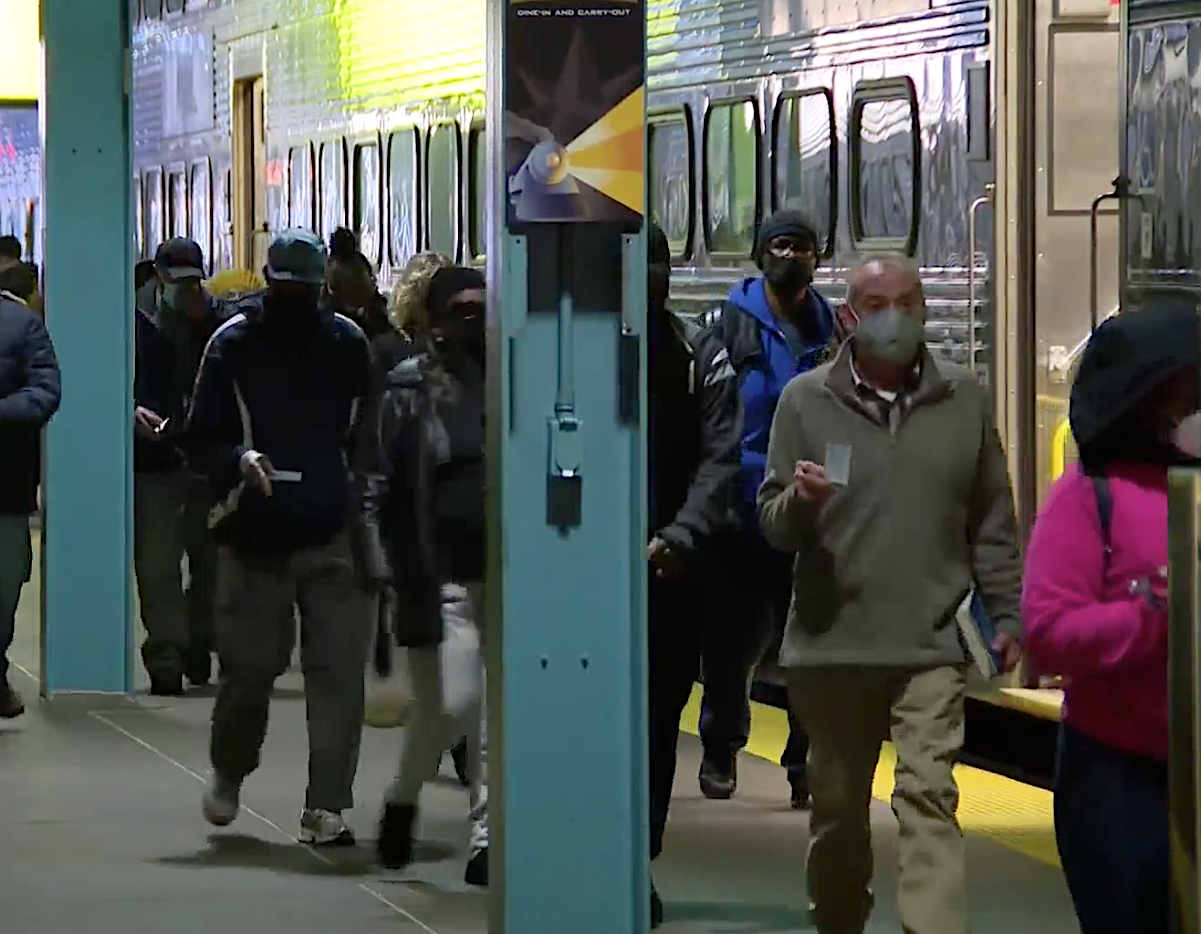In recent months, Union Pacific, which has an agreement with Metra to operates its UP North, Northwest and West lines, the three routes that terminate at the downtown Ogilvie Transportation Center, has been using the COVID-19 pandemic as an excuse to not to have conductors collect fares from customers. Metra says UP's failure to collect fares is costing Metra $1 million a month. Last week a railroad industry insider told Streetsblog Chicago that this recalcitrance is actually a strategy to "bleed Metra dry” in order to pressure it to pay to take over commuter rail operations for the three lines, of which UP owns the tracks and rolling stock.
Streetsblog readers asked, why doesn't Metra just sue Union Pacific for the lost revenue? They already are suing each other, SBC cofounder Steven Vance pointed out: Union Pacific filed a lawsuit to try to force a deal in December 2019, and Metra sued this summer in an effort to move the dispute from federal court to the U.S. Surface Transportation Board.
Today Metra ratcheted the conflict up another notch with a new lawsuit accusing Union Pacific of breach of contract, arguing that UP is guilty of "severely damaging Metra’s bottom line, reputation and customer experience by an 'arbitrary and capricious' refusal" to have conductors collect fares and complete other onboard tasks. The suit seeks compensation for the lost ticket revenue, as well as a permanent injunction requiring UP to have conductors resume selling and validating tickets, and patrolling the cars to make sure customers are safe and are following the rules.
“We strongly disagree with how Union Pacific Railroad has been operating commuter service,” said Metra CEO Jim Derwinski in a statement. “We have given UP management numerous opportunities to provide the necessary level of service as on our other lines, but they have refused to address these issues in any meaningful way and have left us no recourse but to seek relief through the courts.”
Metra said in a press release that its purchase of service agreement with UP outlines required duties for conductors and other onboard personnel, and noted that UP’s own guidelines state that it is “critically important that [onboard train personnel] make repeated passes through their assigned cars throughout the trip, in order to detect and observe medical emergencies, passengers needing assistance or information, the general orderly conduct of the train, and fare collection.”
While Metra suspended fare collection on all of its lines early in the pandemic as a safety precaution, In June, after the infection and fatality rate dropped in Illinois, the commuter railroad ordered its conductors to check tickets again. Metra argued that its new cleaning protocols, as well as mask and social distancing requirements, made it safe to do so. "With those safety measures in place, conductors on the eight other Metra lines -- including on the BNSF Line, which is owned and operated by BNSF Railway under a similar PSA with Metra -- have been safely performing all of their required duties since June," the release stated. "However, UP has refused repeated requests from Metra to require its conductors to start working the trains again."
“Conductors at every other large commuter railroad in the country are collecting fares and working the railcars, following the recommendations of the [Centers for Disease Control] and health officials to do it safely.” Derwinski said. “At a time when Metra’s essential workers are striving to maintain service for the region’s essential workers, UP is dodging its obligations and exempting its workers.”
Union Pacific recently set up Plexiglas ticket verification booths on the platform at Ogilvie where employees are supposed to check the tickets of passengers boarding and alighting trains, but Metra said today that it didn't agree to that alternative measure. The commuter railroad previously stated that it was worried about the new system being a hassle for commuters, and that it could create bottlenecks that lead to unsafe crowding. Today Metra said the practice doesn't meet the requirements of the PSA, and that it may actually cost more in staff time than it will collect in fare revenue.
Metra added that it has gotten feedback from dozens of riders who say they feel less safe on the UP lines now that conductors aren't making the rounds, and that they dislike the ticket verification booth system.
“At the end of the day, without question, this is about our riders” Derwinski stated. “There is absolutely nothing more important than providing them with timely and safe transportation. We will continue to fight on their behalf.”
There you have it -- Metra has once again thrown down the gauntlet. Your move, Union Pacific.






